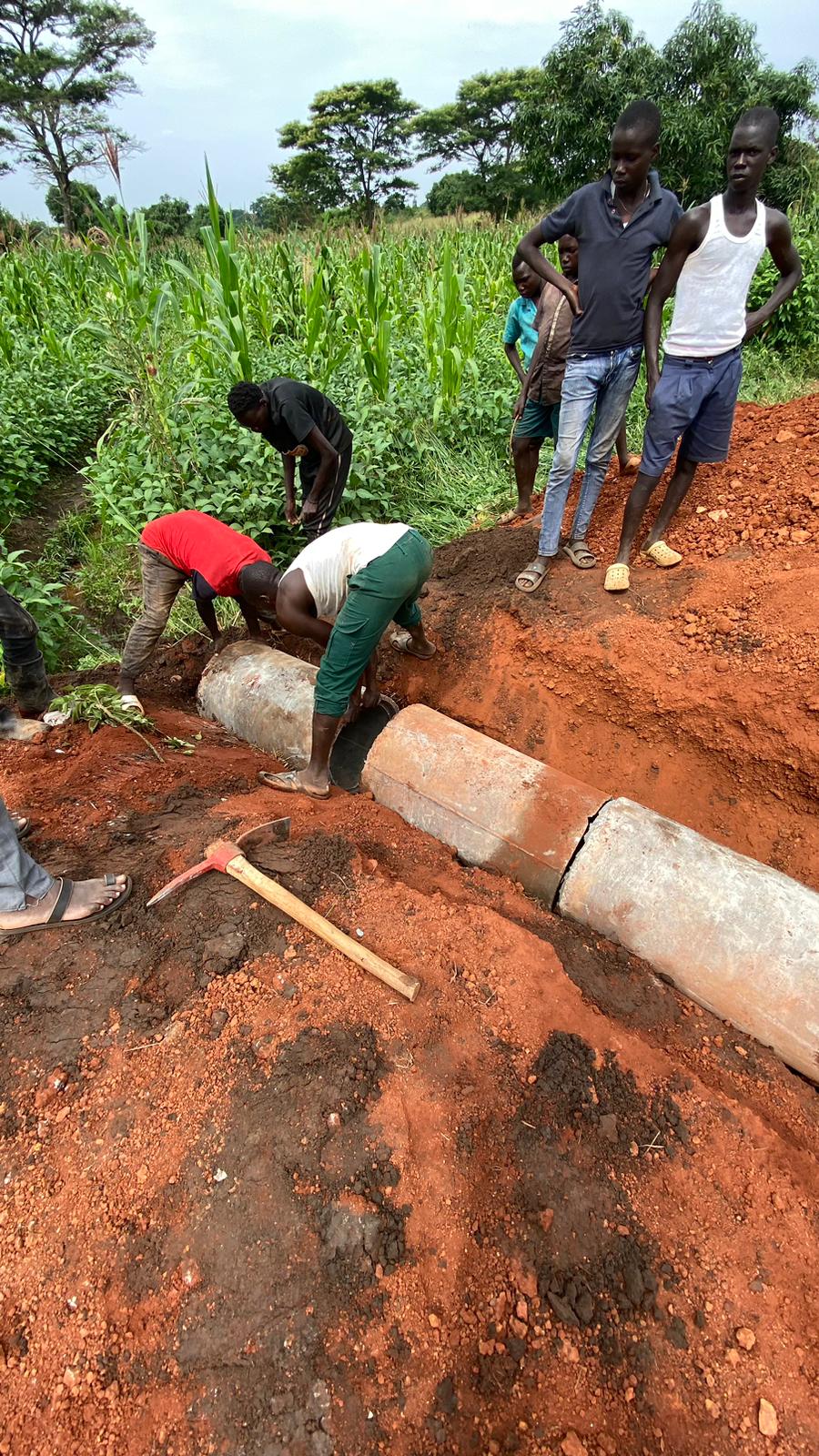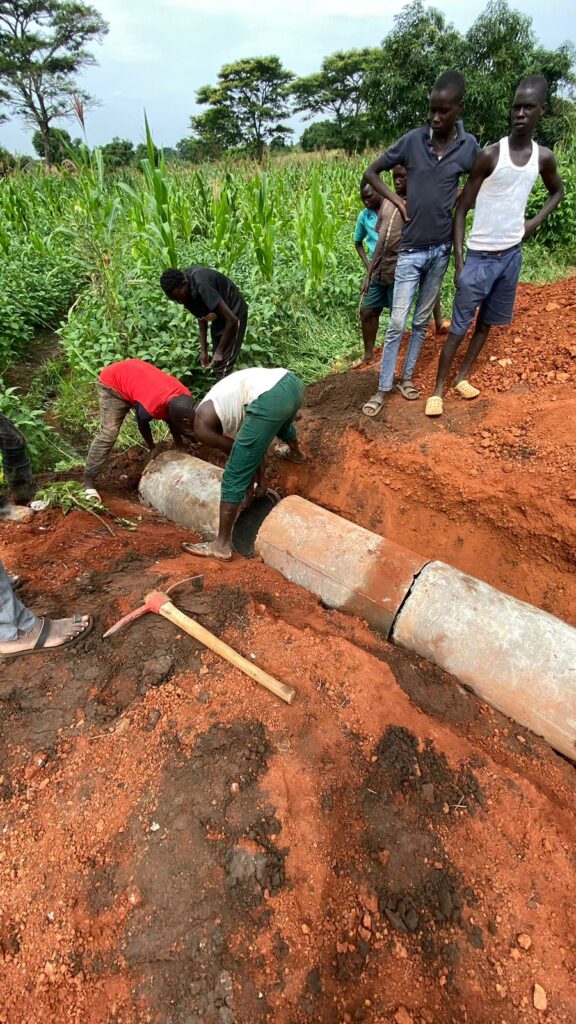
 Shine FM
Shine FM

 Shine FM
Shine FM
20 June 2025, 10:34 am

By Eman Yonah Oruk
Queen Dorothy Amolo, a prominent political figure and respected community leader in northern Uganda, has officially launched a large-scale community-driven road rehabilitation campaign aimed at restoring critical rural infrastructure across Oyam South Constituency.
With support from residents and local leaders, the initiative is already transforming lives and reinvigorating the spirit of self-help within the community. Between 16 and 17 June, Amolo oversaw the successful completion of her second community-led road project, covering a crucial stretch from Juma Parish to Zambia Parish in Kamdini Sub county.
The 17-kilometre stretch, once impassable and riddled with deep gullies, is now accessible to vehicles and pedestrians alike—a development many residents described as “life-changing.” In a bold move reflecting her independent leadership style, Queen Dorothy has pledged to rehabilitate at least 16 more access roads in the coming months.
Her office is currently receiving submissions from village leaders and residents recommending the most severely damaged roads for prioritisation.
Though historically affiliated with the ruling National Resistance Movement (NRM), Amolo has announced her candidacy as an independent in the upcoming parliamentary race. She emphasised that her decision is rooted in the belief that leadership must be grounded in direct service to the people, not merely political alignment.
“I am standing with the people of Oyam South, not behind any party slogan,” Amolo declared during the road launch ceremony. “These roads are our lifelines. If we wait for top-down solutions, our children will keep missing school, our mothers will keep walking miles to health centres, and our farmers will remain cut off from markets. We must act now, together.”
The road rehabilitation drive has ignited a wave of enthusiasm across the district. In interviews conducted by local reporters, dozens of residents expressed deep appreciation for Queen Dorothy’s commitment and hands-on involvement. “This is the first time in years that someone has come and physically worked with us to fix our roads,” said Jimmy Oryang, a resident of Amati “A.” “It’s not just politics for her. She is doing what government has failed to do.”
Oryang noted that improved road access will significantly ease travel between Kamdini, Minakulu, and Myene Sub- counties, areas that have long suffered from isolation due to poor infrastructure. He also warned that bad roads have contributed to rising school dropout rates, as children opt out of the daily struggle of walking through mud and brush just to reach class. “Some children have turned to fishing, hunting, or hawking in towns. They fear the distance and the danger,” he added.
Patrick Otyeno, LC1 Chairperson of Amati “A,” shared alarming stories about the impact of neglected road infrastructure on local security. According to him, criminals have taken advantage of the remote and treacherous roads to stage ambushes and robberies, targeting travellers, women, and boda-boda riders.
“We’ve had reports of broken limbs, accidents, and cases where women were attacked. It’s unacceptable,” said Otyeno. “Now that the road is rehabilitated, we expect better security, faster response times, and economic revival in this corridor.” He called on community members to continue maintaining the roads through routine clearing and drainage, insisting that collective ownership is key to lasting results.
Although the current phase of work is concentrated in Kamdini Sub county, the project’s scope is expansive. Amolo’s roadmap includes plans to cover all five sub counties and three town councils within Oyam South, targeting roads that connect health centres, schools, churches, markets, and administrative offices.
A technical report from her office indicates that community members are providing labour and tools, while fuel and mechanical support are being sourced through local fundraising and donor contributions.
“This is not just a road project — it’s a movement,” said Amolo. “We’re proving that when leadership is accountable and the community is united, transformation is possible — even with limited resources.”
As political campaigns intensify ahead of the 2026 elections, Amolo’s approach stands out in a landscape often characterised by empty promises and party patronage. By addressing a visible, tangible need and mobilising the people themselves as agents of change, she has set a compelling precedent for community-centred leadership.
With momentum growing and more communities nominating road segments for rehabilitation, Queen Dorothy Amolo’s campaign may be paving more than roads—it may be carving a new path for participatory governance in rural Uganda.